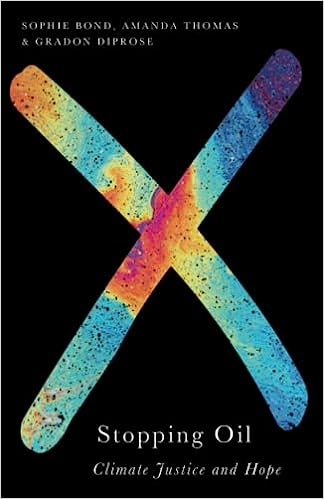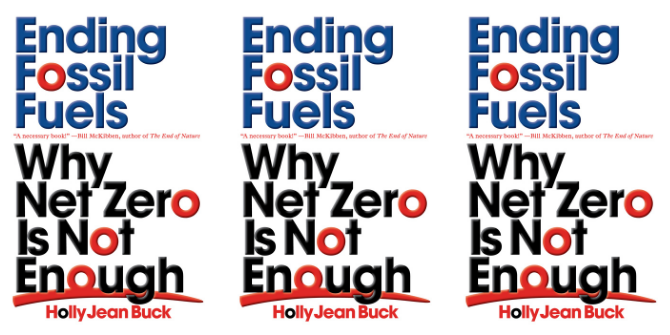In Stopping Oil: Climate Justice and Hope, Sophie Bond, Amanda Thomas and Gradon Diprose examine Aotearoa New Zealand’s deep-sea oil development agenda in recent decades and the climate justice movement that mobilised in response to it. The book offers a powerful narrative account of the economic, political, social, and cultural contexts that have shaped the country’s energy politics, including the rich history of indigenous activism and struggle for environmental democracy, writes Sibo Chen.
Stopping Oil: Climate Justice and Hope. Sophie Bond, Amanda Thomas and Gradon Diprose. Pluto Press. 2023.
Find this book (affiliate link):![]()
 The urgent need to phase out fossil fuels has received growing public attention in recent years as damaging effects of global warming have accelerated. Aotearoa New Zealand (Aotearoa is the contemporary Māori language name for the country) is often under-scrutinised in public conversations on the issue, as the country’s progressive image and commitment to environmental preservation can easily conceal its complex political landscape. Yet, over the past two decades, offshore oil and gas development has become a highly contentious issue, leading to surging political tensions within the country.
The urgent need to phase out fossil fuels has received growing public attention in recent years as damaging effects of global warming have accelerated. Aotearoa New Zealand (Aotearoa is the contemporary Māori language name for the country) is often under-scrutinised in public conversations on the issue, as the country’s progressive image and commitment to environmental preservation can easily conceal its complex political landscape. Yet, over the past two decades, offshore oil and gas development has become a highly contentious issue, leading to surging political tensions within the country.
Stopping Oil: Climate Justice and Hope offers analysis of the various tactics employed by the government-industry alliance to bolster and expand Aotearoa New Zealand’s petroleum economy. The book also highlights the persistent opposition to these tactics manifested through Māori- and community-led activism. As authors Sophie Bond, Amanda Thomas and Gradon Diprose note, what makes the struggle for climate justice in Aotearoa New Zealand particularly interesting is ‘its demonstration of ideas of environmental democracy, where democracy is understood as the ability to engage in active and robust debate about issues and the ability to meaningfully dissent, be heard, and propose ideas for alternative futures that are more fair, just, and sustainable’(2).
The distinct ways power manifests itself within the country’s context of continued colonialism, swift and extensive neoliberal transformation, and a history of indigenous activism
The book consists of eight chapters that collectively tell the story of the energy politics of Aotearoa New Zealand from 2008 to 2017. Chapter One, ‘Security for Whom,’ introduces the factors that gave rise to an ambition for offshore oil and gas exploration, as well as the Oil Free activism in response to it. The authors take a feminist political geography approach to the study of climate justice, which considers ‘politics and activism to be happening at every scale, and that one isn’t more important than another’ (4). Accordingly, the examination of conflicts surrounding fossil fuels in Aotearoa New Zealand goes beyond just being a case study that supplements content generated in the so-called centres of geography and theory. Instead, it exposes the distinct ways power manifests itself within the country’s context of continued colonialism, swift and extensive neoliberal transformation, and a history of indigenous activism.
Chapters Two (‘Securing Oil’) and Three (‘Contesting Oil’) further elaborate the economic, political, social, and cultural contexts that have shaped the oil and gas industry in Aotearoa New Zealand since the 1980s. Similar to other developed countries, the government has implemented the core tenets of neoliberalism, such as a belief in the market as the best way to allocate resources and an emphasis on individual freedom and responsibility. This has undermined democracy and eroded the government’s role in checks and balances. As a result, resource industries and their proponents claim extractive activities as morally acceptable in order for Aotearoa New Zealand to catch up with Australia, maintain life quality, and sustain economic growth.
Resource industries and their proponents claim extractive activities as morally acceptable in order for Aotearoa New Zealand to catch up with Australia, maintain life quality, and sustain economic growth
However, as the government and its industry partners sought to expand offshore oil and gas exploration and development, they were met with substantial public opposition. Chapter Three links this trend to the growing public awareness of the social license concept. For many Kiwis, this is considered unacceptable as it further undermines Indigenous sovereignty.
The book’s second part (Chapters Four to Six) delves into the ways in which the oil and gas industry, investors, the media, and sympathetic governments tame, depoliticise, and delegitimise the messages and actions of Oil Free activists. Chapter Four (‘Taming the Narrative’) examines how various efforts by Oil Free groups have been portrayed by the media, revealing a tendency within media coverage to portray extractivism through a lens of pragmatic realism, prioritising economic benefits over environmental concerns. The chapter also discusses how activists respond to biased media portrayals by aligning their campaigns with Aotearoa New Zealand’s eco-national identities, emphasising climate justice, and engaging ordinary citizens.
A tendency within media coverage to portray extractivism through a lens of pragmatic realism, prioritising economic benefits over environmental concerns
Chapter Five (‘Securing-Business-as-Usual’) turns to the various efforts by the oil and gas industry, along with its governmental allies, to maintain the investment conditions for offshore oil and gas development. The authors highlight the strategies that fossil fuel advocates employ to emphasise corporate social responsibility while implementing surveillance practices. Finally, Chapter Six (‘Policing and Dehumanising Activists’) discusses policing. It places the experiences of Oil Free activists within the context of growing public concern over expanding policing practices in Western nations (Britain, Canada, the United States, etc.), with a specific focus on the local context of Aotearoa New Zealand. The chapter criticises police brutality, as evidenced by the violence and dehumanisation experienced by many activists and draws attention to the rise of authoritarian responses to protest in Western democracies.
Discourses concerning care and responsibility serve as a potent rebuttal to the strategies of suppression and depoliticisation
The book’s final part (Chapter Seven, ’Enacting Care and Responsibility’, and Chapter Eight, ‘Democracy and Hope’) elaborates how key concepts such as hope, care and responsibility empower Oil Free activists to practice an ethic of care. This ethic not only provides them with the collective strength necessary to combat the delegitimisation and violence they face, but also underscores a broader sense of obligation towards climate and social injustice. The authors emphasise that discourses concerning care and responsibility serve as a potent rebuttal to the strategies of suppression and depoliticisation detailed in preceding chapters. This is because ‘carelessness’ serves as the central ideological framework through which contemporary neoliberal capitalism reproduces the separation of nature and society.
Overall, Stopping Oil: Climate Justice and Hope presents an engaging case study of a country previously underrepresented in climate crisis literature. The authors pledge in the beginning chapter to ‘share the story [of Oil Free activism in Aotearoa New Zealand] as a whole, linking key ideas, and more explicitly situating the story of this campaign within a broader trajectory of climate justice’ (3). Considering the powerful narrative constructed across all chapters, they achieve this goal. While this storytelling approach occasionally renders some theoretical discussions fragmentary, the lessons from Aotearoa New Zealand concerning public mobilisation for climate justice offer invaluable insights for environmental organisations, activists, and concerned citizens worldwide.
Note: This review gives the views of the author, and not the position of the LSE Review of Books blog, or of the London School of Economics and Political Science. The LSE RB blog may receive a small commission if you choose to make a purchase through the above Amazon affiliate link. This is entirely independent of the coverage of the book on LSE Review of Books.
Main Image Credit: D.D. via 350Aotearoa.org.






